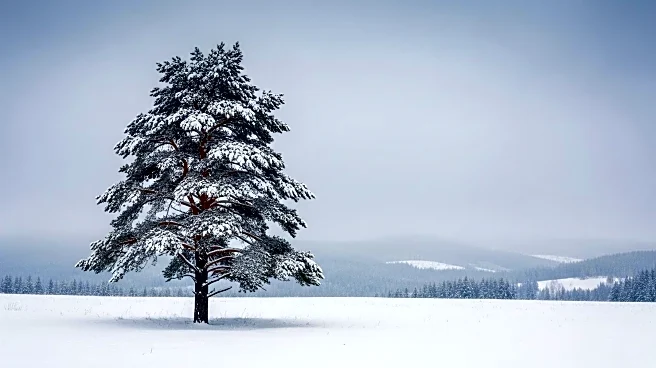What is the story about?
What's Happening?
A cold front is expected to move across South Africa from October 15 to 17, bringing a significant drop in temperatures, particularly over the southern interior. According to independent agricultural meteorologist Johan van den Berg, there is a possibility of light snow over the Western and Eastern Cape mountains, especially around October 16. The cold front could push minimum temperatures below freezing in some areas, including Sutherland, and below 5°C in parts of the Western Cape such as Ceres and Oudtshoorn. The southern Free State and northern Eastern Cape may also experience temperatures below 5°C. Minimum temperatures between 5°C and 10°C are expected in the eastern Free State, southern Northern Cape, southern Mpumalanga, and southern KwaZulu-Natal.
Why It's Important?
The forecasted cold front and potential snowfall could impact agricultural activities in the affected regions. Farmers are advised to consider the temperature drops when planning for the summer planting season. The cold temperatures could affect crop germination, as soil-level temperatures can be significantly lower than those recorded at weather stations. This weather event highlights the importance of monitoring and adapting to changing climatic conditions to ensure successful agricultural outcomes.
What's Next?
Farmers in the affected regions should prepare for the cold front by taking measures to protect crops and livestock from the freezing temperatures. Monitoring weather forecasts and adjusting planting schedules may be necessary to mitigate the impact of the cold front on agricultural productivity. Continued observation of temperature trends will be crucial for planning future agricultural activities.
Beyond the Headlines
The occurrence of such cold fronts may become more frequent due to climate change, necessitating long-term strategies for adaptation in the agricultural sector. Understanding the implications of these weather patterns on crop yields and livestock health will be essential for sustainable farming practices.
















